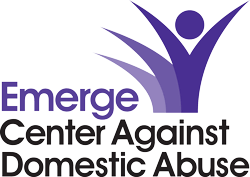
October 2019 – Supporting victims who die by suicide
This week’s too often untold story is about domestic abuse victims who die by suicide. Mark Flanigan recounts the experience of supporting his dear friend Mitsu, who died by suicide one day after disclosing to him that she was in an abusive relationship.
My friend lost her life as a result of domestic violence, and for a long time, I blamed myself.
My friend Mitsu was a beautiful person, inside and out. Originally from Japan, she was living and studying to be a nurse here in the U.S. Her radiant smile and cheerful personality were such that people around her could not resist becoming her fast and genuine friends. She was someone who personified compassion, goodness, and had so much to live for. Sadly, Mitsu lost her life as a result of domestic violence.
I’d first met Mitsu about six years ago in Washington, DC, during the annual Cherry Blossom Festival. She was volunteering there as an interpreter and wearing a lovely bright pink and white kimono. At the time, I was working for a Japan-related educational foundation, and we were recruiting international students for our affiliated school in Tokyo. One of our colleagues could not make it that day, and our booth was short-staffed. Without hesitation, Mitsu (whom I had just met) jumped right in and started helping us out!
Although she had no connection to our foundation or school, Mitsu happily insisted on doing whatever she could do for us. Of course, with her cheerful personality and wonderfully resplendent kimono, she drew many more interested applicants than we could have ever hoped for. Our own alumni volunteers were completely entranced by her, and quite humbled to see her dedicated support. That’s just one small indication of the type of truly selfless person she was.
Mitsu and I kept in touch over the years, but one day she told me she’d decided to move to Hawaii. It was not an easy decision for her to make, because she had a full life and many friends in D.C. She was studying to be a nurse and was doing pretty well at it, despite the challenging curriculum and taking her program entirely in English, which was her second language. Nonetheless, she felt a duty to her aging parents, as their only child, to be closer to her home country of Japan.
As a compromise, and to continue her studies with minimal disruption, she relocated to Hawaii. That way, she could still study nursing (which was a perfect career for her) within the American higher education system while being able to fly back to her family in Japan as needed. I imagine she felt a bit out of place at first, as she did not really have any family or friends there in Hawaii, but she made the best of it and continued her studies.
In the meantime, I moved here to Tucson, Arizona, to start my new year of service with AmeriCorps. Not long after, I was surprised to learn from Mitsu that she had a fiancé, as she hadn’t been dating anyone previously. However, she seemed to be happy, and the two of them took a number of different trips together. From their photos, he looked like a friendly, outgoing, athletic type. As she loved to travel and explore the outdoors, I took this as a positive indication that she had found her compatible life partner.
 Despite feeling happy for her initially, I was alarmed to hear later from Mitsu that she was the victim of physical and emotional abuse. Her fiancé was prone to angry and violent behavior after bouts of heavy drinking, and took it out on her. They had purchased a condo together in Hawaii, so she felt socially and economically trapped by their financial ties. Mitsu was trying to figure out how to deal with the situation and was extremely scared to try and leave him. She wanted to go back to Japan, but was paralyzed by her sense of fear and shame at her terrible situation.
Despite feeling happy for her initially, I was alarmed to hear later from Mitsu that she was the victim of physical and emotional abuse. Her fiancé was prone to angry and violent behavior after bouts of heavy drinking, and took it out on her. They had purchased a condo together in Hawaii, so she felt socially and economically trapped by their financial ties. Mitsu was trying to figure out how to deal with the situation and was extremely scared to try and leave him. She wanted to go back to Japan, but was paralyzed by her sense of fear and shame at her terrible situation.
I tried to assure her that none of that was her fault, and that no one deserved to suffer from verbal or physical domestic violence. She had a few friends there, but none she could stay with for more than one or two nights. I was not familiar with shelters in Oahu, but I looked up some basic emergency-related resources for abuse victims and shared them with her. I promised I would try to help her find an attorney in Hawaii that specialized in domestic violence cases. This support seemed to give her some temporary respite, and she thanked me for helping her. Ever thoughtful, she asked how I was doing in my new position in Arizona and told me that she hoped things would continue to go well for me in my new environment.
I didn’t know it then, but that would be the very last time I ever heard from Mitsu. I reached out to friends in Hawaii and got the contact of a highly regarded attorney that I thought would be able to help her with her case. I sent her the information, but never heard back, which caused me great concern. Finally, about three weeks later, I heard from Mitsu’s cousin that she was gone. As it turns out, she had taken her own life just one day after she and I had last talked. I can only imagine the relentless pain and suffering that she must have been feeling in those last few hours.
As a result, there was no case to follow up with. Since no charges had ever been filed against her fiancé, the police did not have anything to go on. With her suicide, there would be no further investigation beyond the immediate cause of her death. Her surviving family members did not have the desire to go through the process of pursuing anything further in their time of grieving. As saddened and shocked as I was at the sudden loss of my dear friend Mitsu, what hit me the hardest was that I hadn’t been able to do anything at all for her in the end. Now it was simply too late, and I felt I’d blown it.
While I know on a rational level that there is nothing more I could have done, part of me still blamed myself for not being able to prevent her pain and loss somehow. In my life and career, I have always tried to be someone who serves others, and to make a positive impact. I felt like I had completely let Mitsu down in her time of greatest need, and there was simply nothing I could do to change that awful realization. I felt very angry, sorrowful, and guilty all at once.
While I still continued to serve at work, I became anxious and withdrew from a lot of different social activities that I had previously enjoyed doing. I had trouble sleeping through the night, often waking up in a cold sweat. I stopped working out, going to karaoke, and socializing in larger groups, all because of the numbingly constant feeling that I had failed to help my friend when she needed it the most. For weeks and months, I lived most days in what I can only describe as a heavy, numbing fog.

Fortunately, I was able to admit to others that I was dealing with this intense grief and needed support. While I have not spoken publicly about it until now, I was helped greatly by some of my closest friends and my colleagues at work. They encouraged me to seek out some way to honor Mitsu’s memory, in a manner that would be meaningful and have some kind of lasting impact. Thanks to their kind support, I have been able to join a number of workshops and activities here in Tucson that support victims of domestic violence and also work to help raise healthy and respectful young men.
I also started seeing a behavioral health therapist at a local public health clinic, who has helped me immeasurably to understand and work through my own complex feelings of anger, pain, and sadness around the loss of my good friend. She has helped me to navigate the long road to recovery and to understand that the pain of emotional trauma is no less debilitating than a broken leg or a heart attack, even if the symptoms are not as outwardly obvious. Step by step, it’s gotten easier, although some days the pain of grief still hits me unexpectedly.
By sharing her story, and highlighting the often-overlooked cases of suicide as a result of abuse, I hope that we as a society can continue to learn and speak out about this awful epidemic. If even one person becomes more aware of domestic violence by reading this article, and works to help end it, then I will be happy.
Although I will sadly never see or talk with my friend again, I know that her radiant smile and lovely compassion for others will never be dimmed, as she lives on in the work that we all do collectively to make the world a brighter place in our own communities. I have since dedicated myself fully to this work here in Tucson as a way to celebrate Mitsu’s all-too-brief time here on earth, and the amazingly positive legacy she continues to leave behind with us, even now.
